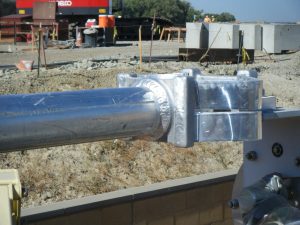Mobile Aluminum Bus Bar Welding - Mobile Welding
- Home
- Mobile Aluminum Bus Bar Welding
Car Repairing

- March 15, 2024
- By: admin
- Mobile Welding, Northern California Welding Services, Sacramento Welding Services, Stainless Steel Welding, Steel Welding
- Comments: 0
Wright Welding | Mobile Welding | Aluminum Welding | Steel Welding | Stainless Steel Welding | Sacramento | Northern California
In the realm of electrical substation maintenance and construction, few tasks demand the precision and expertise required for mobile aluminum bus bar welding. As a crucial element in ensuring uninterrupted power transmission, the welding of aluminum bus bars demands a unique skill set honed over years of experience. With the added challenge of varying weather conditions and intricate setup requirements, mastering this craft is truly an art form.
At the heart of every electrical substation lies the bus bar system, serving as the backbone for the distribution of electricity. These conductive bars, typically made of aluminum due to its conductivity and cost-effectiveness, require precise welding to maintain efficiency and reliability. Unlike traditional steel welding, aluminum welding presents its own set of challenges, requiring specialized equipment and techniques.
One of the most distinctive aspects of mobile aluminum bus bar welding is the necessity for on-site fabrication and repair. Unlike factory settings where conditions are controlled, field welding demands adaptability to unpredictable environments. Whether working in scorching heat or freezing cold, skilled welders must adjust their techniques to ensure optimal results. Extreme weather conditions can affect the properties of aluminum, necessitating adjustments to welding parameters and ensuring proper preheating to prevent cracking and distortion.
Furthermore, the setup for mobile aluminum bus bar welding is intricate and requires meticulous planning. Welders must consider factors such as access to the welding area, safety protocols, and power supply availability. Additionally, proper ventilation and shielding gas management are essential to prevent contamination and ensure the integrity of the weld. With decades of experience, seasoned welders develop an intuitive understanding of these variables, allowing them to adapt quickly to any situation.

Another critical aspect of mobile aluminum bus bar welding is the importance of precision and consistency. The integrity of the electrical system relies on flawless welds that can withstand high currents and temperature fluctuations. Even the smallest imperfection can lead to electrical faults, equipment damage, and costly downtime. Master welders possess a keen eye for detail and employ advanced techniques to achieve immaculate results.
Moreover, aluminum bus bar welding requires a deep understanding of metallurgy and material properties. Aluminum exhibits unique characteristics compared to other metals, such as high thermal conductivity and susceptibility to heat-affected zone (HAZ) cracking. Welders with extensive experience have a thorough grasp of aluminum alloys and their behavior under various welding conditions. This knowledge allows them to select the appropriate filler metal, adjust welding parameters, and execute precise welds with confidence.
Mobile aluminum bus bar welding is a highly specialized skill set that is honed over decades of experience. With the ability to adapt to diverse weather conditions and intricate setup requirements, master welders ensure the reliability and efficiency of electrical substation systems. Through their expertise in precision welding techniques and comprehensive understanding of aluminum metallurgy, these craftsmen uphold the highest standards of quality and safety in the field of electrical engineering.
